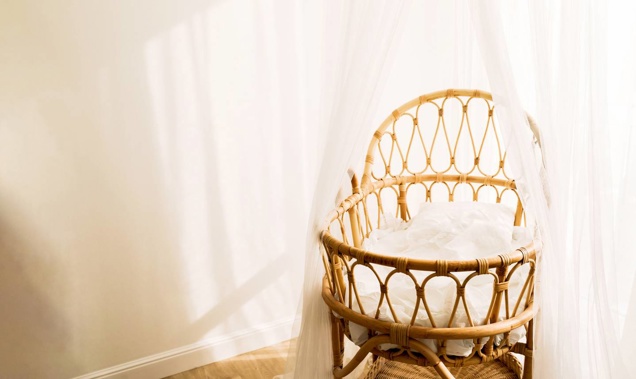
When Jane* and her husband John* heard the news that their surrogate was pregnant last September, they were overjoyed. For Jane, who had a troubled first pregnancy carrying their daughter Jenny*, it meant another chance at motherhood.
As the couple stocked up on nappies and formula, and pulled out Jenny's old baby clothes in anticipation, their only real worry were whether the infant would feel like theirs. But last November, while nine weeks pregnant with the couple's biological baby, their surrogate underwent a termination without their knowledge.
Today, hoping her story will expose the realities of surrogacy in New Zealand, Jane is sharing her heart-breaking story with the Weekly.
"The hardest thing is there's no way of fixing the situation or finding peace," says Jane. "As a woman, it felt like I completely let my marriage and daughter down, not being able to carry another baby. When we were offered surrogacy, it was a dream."
Jane was a teenager when she had the first of many operations for severe endometriosis. She was told she'd never have children and was open about this when she met John on Tinder.
"He figured it was because I was a career woman," she says. "When I told him it was because of my health, he said he didn't mind and would rather be with the right person without kids than with the wrong person with kids."
John assured Jane that if they at least tried to have a baby naturally, they would have done their best. "That's how we continue to look at things today," she says. "When John held me in complete heartbreak recently, he just kept telling me that at least we tried."
The couple married just six months after they met and, around two years later, were delighted to learn they were pregnant with Jenny.
"It was an amazing feeling, although I was very sick from early on," tells Jane, who suffered hyperemesis gravidarum, a condition that causes extreme nausea. "It was horrendous – I vomited day and night. My pelvis also started to displace, so I was in agony to the point where I had to walk on crutches. By the third trimester, I was on antidepressants and using a wheelchair when making trips to hospital."
After being induced at 38 weeks, Jane gave birth to their precious girl. "The midwife called it a 'violent, traumatic birth' because I kept vomiting throughout the labour."
It was love at first sight for the new parents. Eventually, they discussed the possibility of giving her a sibling, but in early 2019, Jane's gynaecologist confirmed it was unlikely she'd carry another baby and that if she did, it could result in a nine-month hospital stay.
"Shortly after I got the letter, I was sitting down with a friend who was dealing with a big life event and she said her siblings were what got her through it," says Jane. "I told her I'd just found out I couldn't carry again and how we'd wanted two kids."
Jane's friend piped up with the offer of a lifetime. "Out of the blue, she said, 'I'd make a good surrogate because when I had my pregnancy, I didn't really feel it,'" recalls Jane. "She said she'd talk to her husband and get back to me." Not long after, they began the process of surrogacy.
In New Zealand, surrogacies are done via an "altruistic arrangement", as opposed to a legal contract, which means it can be done out of goodwill or selflessness, but not for payment.
"The couple said they were happy to do it because if anyone deserved this, it was John and I," says Jane. "I was completely overwhelmed that someone would do that for us. The hardest part of surrogacy is finding someone and getting pregnant, and the first person I'd opened up to had offered!"
In June 2019, Jane and her surrogate talked to a clinic.
"We did fertility counselling as singles, couples and as a group, and part of it was a questionnaire around things like termination and whose baby the surrogate sees it as," says Jane. "Everything was clear-cut. We had separate solicitors and reports went to the ethics board, and after seeing our case, they didn't come back and ask any questions. That made me feel very confident."
With their surrogate arrangement officially approved by the Ethics Committee on Assisted Reproductive Technology, the couples prepared for the embryo transfer. They'd also been approved by an Oranga Tamariki social worker, who determined the child's best interests were at heart.
"We were all excited, and John and I gave the couple so many options to pull out, but they said they felt like they were doing the right thing," tells Jane, who in September 2020 was ecstatic to learn their surrogate was pregnant.
But five weeks into the pregnancy, the woman left a heart-breaking voice message telling Jane and John she'd suffered a miscarriage.
"That was the point I realised I was fully invested – I couldn't breathe," tells Jane. "When the fertility clinic asked for bloods to confirm the baby had gone, it showed she was still pregnant, which was a pretty amazing feeling. We still had our baby!"
At week nine of the pregnancy, both couples' time with the fertility clinic came to an end and they were handed over to obstetricians. "I thought it seemed too early," shares Jane.
"Now I think if we'd had more help for longer, we'd be in a much better place today."
Behind the scenes, Jane's surrogate was suffering from severe prenatal depression and the distance between the two women grew. For a second time, they received a call to say the surrogate had another miscarriage.
"Her husband rang John to say they'd had a bleed and we were in absolute shock," says Jane. "I felt like my world crashed all over again. But it didn't all make sense. I asked if they'd done bloods and then they blocked us out."
Jane says that for three weeks – during which time neither the fertility clinic nor doctors could give her answers – she didn't know if her baby was alive. Eventually, the surrogate's husband arrived at Jane and John's doorstep with a note from his wife's doctor.
"All it said was that she lost the baby in mid-November," says Jane. "I stood there, with John holding my hand, and asked if it was a termination because things didn't add up. He said it was definitely a miscarriage."
But when she questioned whether he was being "totally honest", he admitted they'd terminated the baby. "His wife had gone to her own doctor and blocked out all the channels we'd put in place," says Jane. "I went into shock."
When the Weekly approached the surrogate couple to share their side of the story, they asked to remain anonymous. The surrogate's husband said, "We entered into the agreement with a genuine desire to help. Unfortunately, things did not go to plan and she became very sick with prenatal depression. This is probably a more complicated story than it appears on the surface. Jane and John do not really know the whole situation."
Today, the couples are no longer in contact and Jane still doesn't know why their baby was terminated. "On reflection, it started to go downhill while prepping for the embryo transfer, but John and I didn't see it," she says. "The surrogate didn't like the process at the fertility clinic or the one choice of counsellor we had. I think she felt like she was let down."
Although Jane and John haven't given up their hope of adding to their family and have three embryos still on hold, Jane believes more could have been done prior to the termination to ensure their story ended differently.
"When dealing with the solicitors and counsellors at the start, a lot of the focus was on when the baby comes, like the adoption papers, which I get," she says. "But what about all the women who don't get to the end of it with a baby? What's the point of doing questionnaires at the start and counselling through every scenario when none of it comes into play? No one's there to make sure it does."
Jane believes she should have been told about the termination before it took place.
"It was our biological baby and Jenny's biological sibling. I could've explained how it was going to affect the rest of our lives. Even though everyone has walked away from this and even though it's painful, I'll talk about it. I never expected I'd have to worry about someone terminating our baby. It never crossed my mind."
Now, as she and John attempt to heal from their loss, Jane says she's focusing on treasuring what she does have. "I still have a beautiful husband and a sweet, caring daughter. I also keep trying to remind myself that the most important thing is that we tried."
*Names have been changed.
Surrogacy in New Zealand
Under New Zealand law, there are no legal protections for parents having a baby by surrogate or for the surrogate herself. The surrogate is considered the legal parent and the biological parents must adopt the child after birth to make the relationship legal. This means that under NZ law, the surrogate can either terminate or keep the baby as she wishes. It also means that the biological parents can change their minds and abandon the surrogate with the baby.
Given the lack of protections for either party, some legal experts say our laws are "not fit for purpose". Labour MP Tāmati Coffey, who, with his partner Tim Smith, welcomed their son Tūtānekai by surrogate in 2019, currently has a members' bill in ballot calling for modern laws for modern families. It includes reform of birth certificates, providing a way
to enforce surrogacy arrangements and creating a register of potential surrogates.
WHERE TO GET HELP:
If you are worried about your or someone else's mental health, the best place to get help is your GP or local mental health provider. However, if you or someone else is in danger or endangering others, call 111.
If you need to talk to someone, the following free helplines operate 24/7:
DEPRESSION HELPLINE
: 0800 111 757
LIFELINE
: 0800 543 354
NEED TO TALK?
Call or text 1737
SAMARITANS
: 0800 726 666
YOUTHLINE
: 0800 376 633 or text 234
There are lots of places to get support. For others, click
.
Take your Radio, Podcasts and Music with you









